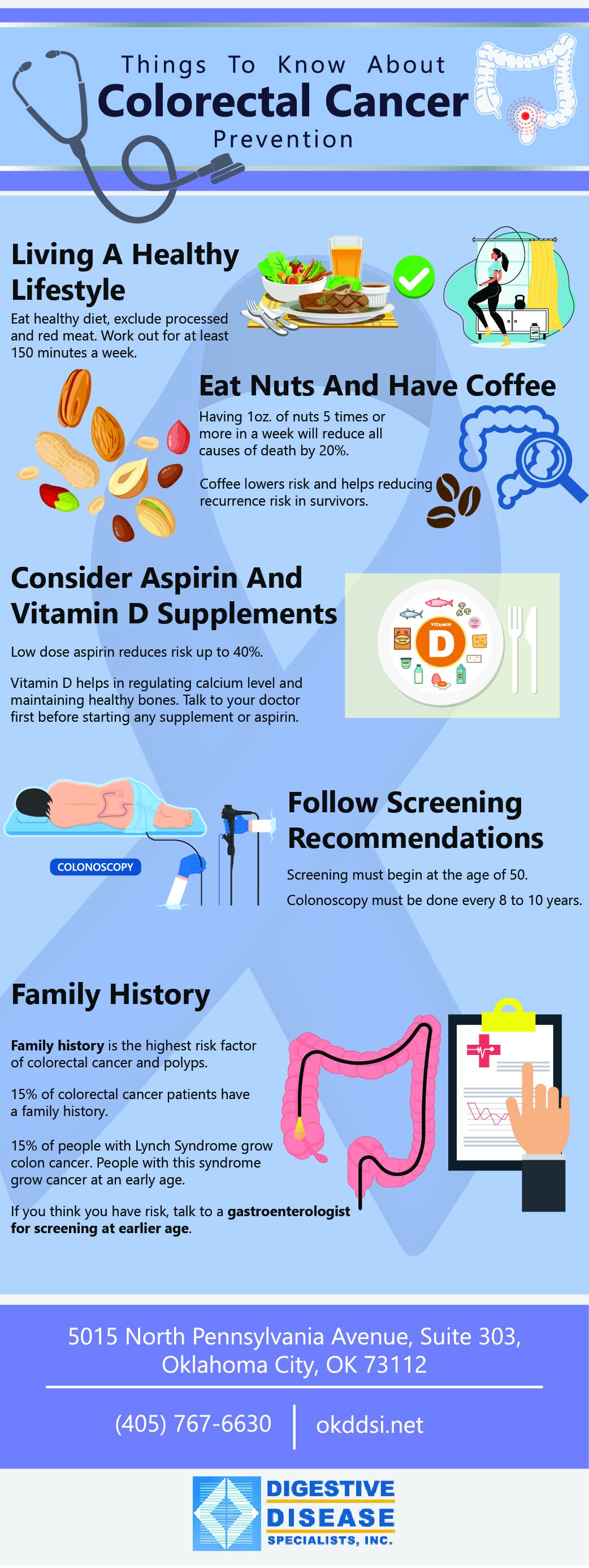
Blog
Understanding Everything About the Procedure of Colonoscopy
Get insights on colonoscopy and the procedure. Also, learn about comprehensive information on what to expect before, during, and after your colonoscopy in OKC.
Don't Miss These Facts About Colorectal Cancer
Detailed insights on colorectal cancer, its prevalence and the importance of early detection through colon cancer screening in OKC. Take action today.
Are You Making Your GERD Worse? Common Triggers Revealed
Manage GERD symptoms and avoid complications with expert advice from a GI specialist on diet, lifestyle adjustments, and essential treatment options.
Understanding the Importance of Colon Cancer Screening
Discover the crucial steps for colon cancer screening in OKC. Stay informed about symptoms and risks to safeguard your health. Early detection saves lives.
Holiday Season with GERD: Expert Tips to Prevention
Expert tips for managing GERD during the holidays from the best gastroenterologist in OKC. Enjoy the festivities without the discomfort of the disease.
Understanding IBD: Insights from a Gastroenterologist
Explore the complexities of Inflammatory Bowel Disease and learn how a gastroenterologist in Edmond, OK, can personalize treatment for improved quality of life.
Which are Some of the Most Common Digestive Diseases?
See insights on digestive health—learn about Crohn's, Celiac and IBS. Check symptoms, causes and treatments and see a trusted gastroenterologist in Edmond, OK.
Conquer Fear with This Helpful Colonoscopy Journey Tips
Unlock colon health with colonoscopy. Learn its significance, colorectal cancer stats, and the step-by-step process. Prioritize your well-being today!
Colonoscopy: Detecting and Preventing the Chances of Cancer
Learn about colonoscopy screening, including when to get screened, exceptions, troubling symptoms, and what to expect during the process. Save your life today!
Is There Any Way to Lower the Risk of Having Colon Cancer
People aged 45 or more should do colonoscopy screening every 10 years to prevent colon cancer. Also, maintaining a healthy lifestyle will help you.
Understanding the Preventive Measures and Risks of Colon Cancer
Colon cancer screening is the ultimate life-saving diagnosis for people crossing the age of 40. Here is what you need to know about it.
Having A Close Look At The Numerous Types Of Colorectal Cancer Screening
Performing colonoscopy screening is the best way to break the shackles of colon cancer. Here are the most reliable screening options to consider.
Does Smoking Affect Your Colorectal Health?
If you are over 50 years and have a family history of colon cancer, then do a colonoscopy screening every ten years. Smoking can higher the risk of colon cancer.
The Details About Crohn And Colitis
Crohn and colitis are both severe gastrointestinal disease and need prolonged treatment. Learn here the causes, symptoms and diagnosis.
The Major Causes Behind Colorectal Cancer
Colorectal cancer can happen to you if you have a family history of this disease. Go for colonoscopy screening soon and get appropriate treatment without delay.
Doing Colonoscopy Screening Can Prevent Colon Cancer
Colonoscopy is essential to prevent the growth of colon cancer among the citizens of the US. When you are 50, you should go for the screening to know if you are at risk.
Things To Know About Colorectal Cancer Prevention
Colonoscopy screening should start at the age of 50 to reduce risks of colon cancer besides you should follow a healthy lifestyle for prevention.
Colorectal Cancer Screening- Infographic
Colorectal Cancer Screening is the way to find polyps in the colon or in the rectum as it will prevent colon cancer as it removes cancerous polyps from the body.
Five Signs You Need To Consult Gastroenterologist
You may have to consult a gastroenterologist at any point of time. See here to know about the basic symptoms that would need a special attention of a specialist.
Who is at Risk for Colorectal Cancer?
Colorectal cancer can happen at any stage. Do not avoid going for a colon cancer screening if you have any symptoms or a family history of colon cancer. See the details here.




















